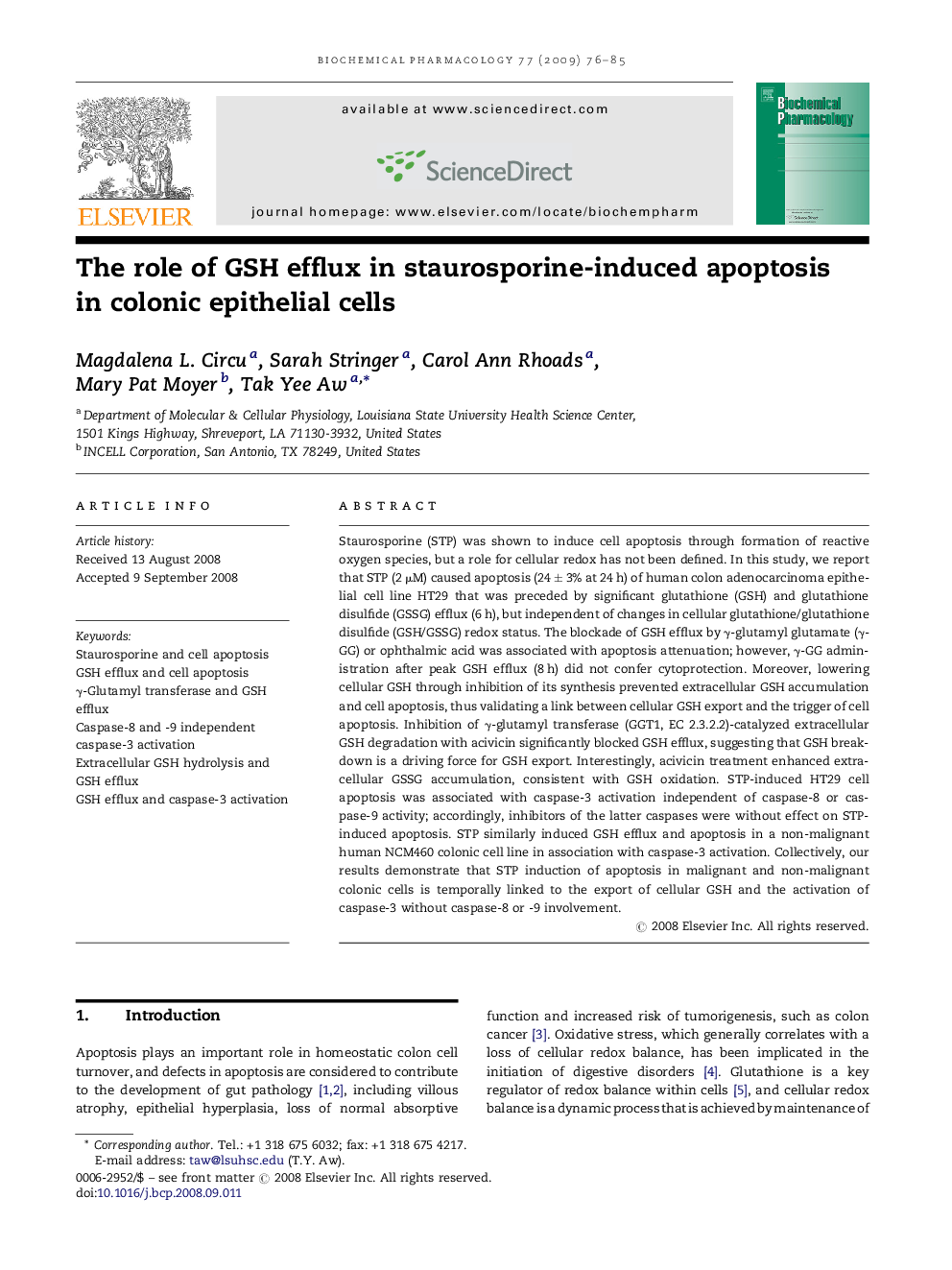| کد مقاله | کد نشریه | سال انتشار | مقاله انگلیسی | نسخه تمام متن |
|---|---|---|---|---|
| 2514076 | 1118447 | 2009 | 10 صفحه PDF | دانلود رایگان |

Staurosporine (STP) was shown to induce cell apoptosis through formation of reactive oxygen species, but a role for cellular redox has not been defined. In this study, we report that STP (2 μM) caused apoptosis (24 ± 3% at 24 h) of human colon adenocarcinoma epithelial cell line HT29 that was preceded by significant glutathione (GSH) and glutathione disulfide (GSSG) efflux (6 h), but independent of changes in cellular glutathione/glutathione disulfide (GSH/GSSG) redox status. The blockade of GSH efflux by γ-glutamyl glutamate (γ-GG) or ophthalmic acid was associated with apoptosis attenuation; however, γ-GG administration after peak GSH efflux (8 h) did not confer cytoprotection. Moreover, lowering cellular GSH through inhibition of its synthesis prevented extracellular GSH accumulation and cell apoptosis, thus validating a link between cellular GSH export and the trigger of cell apoptosis. Inhibition of γ-glutamyl transferase (GGT1, EC 2.3.2.2)-catalyzed extracellular GSH degradation with acivicin significantly blocked GSH efflux, suggesting that GSH breakdown is a driving force for GSH export. Interestingly, acivicin treatment enhanced extracellular GSSG accumulation, consistent with GSH oxidation. STP-induced HT29 cell apoptosis was associated with caspase-3 activation independent of caspase-8 or caspase-9 activity; accordingly, inhibitors of the latter caspases were without effect on STP-induced apoptosis. STP similarly induced GSH efflux and apoptosis in a non-malignant human NCM460 colonic cell line in association with caspase-3 activation. Collectively, our results demonstrate that STP induction of apoptosis in malignant and non-malignant colonic cells is temporally linked to the export of cellular GSH and the activation of caspase-3 without caspase-8 or -9 involvement.
Journal: Biochemical Pharmacology - Volume 77, Issue 1, 1 January 2009, Pages 76–85